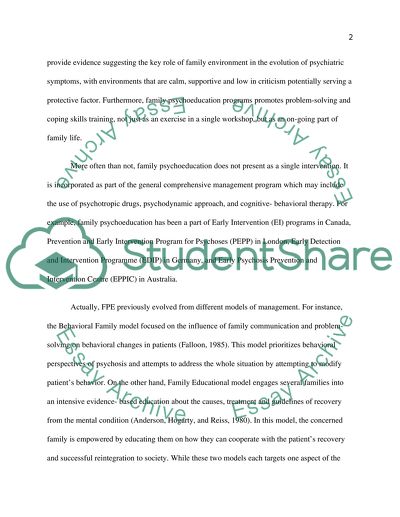Cite this document
(“Family Psycho-Education in First Episode Psychosis Essay - 1”, n.d.)
Retrieved from https://studentshare.org/psychology/1579000-family-psycho-education-in-first-episode-psychosis
Retrieved from https://studentshare.org/psychology/1579000-family-psycho-education-in-first-episode-psychosis
(Family Psycho-Education in First Episode Psychosis Essay - 1)
https://studentshare.org/psychology/1579000-family-psycho-education-in-first-episode-psychosis.
https://studentshare.org/psychology/1579000-family-psycho-education-in-first-episode-psychosis.
“Family Psycho-Education in First Episode Psychosis Essay - 1”, n.d. https://studentshare.org/psychology/1579000-family-psycho-education-in-first-episode-psychosis.


